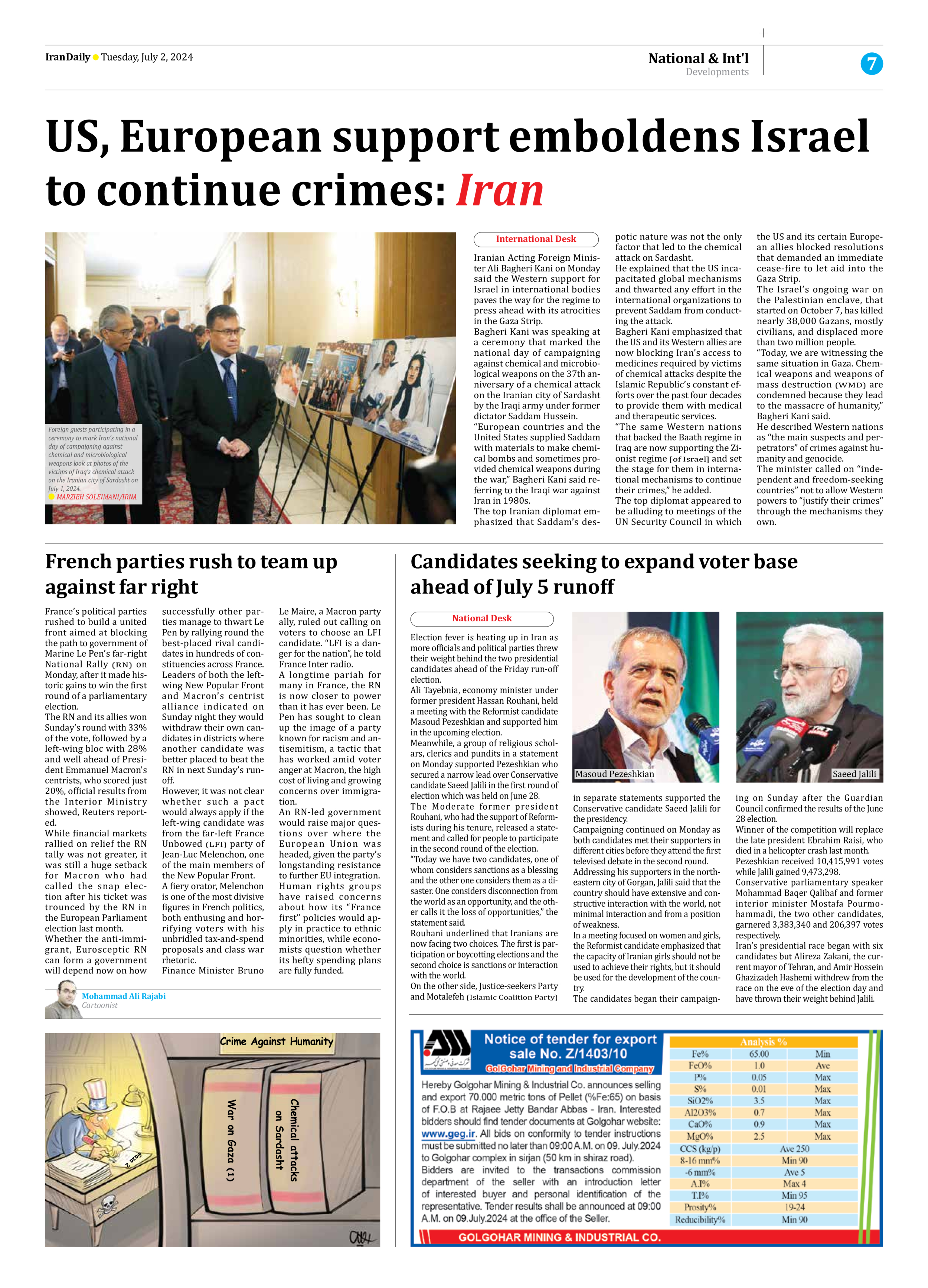
Copy in clipboard...
French parties rush to team up against far right
The RN and its allies won Sunday’s round with 33% of the vote, followed by a left-wing bloc with 28% and well ahead of President Emmanuel Macron’s centrists, who scored just 20%, official results from the Interior Ministry showed, Reuters reported.
While financial markets rallied on relief the RN tally was not greater, it was still a huge setback for Macron who had called the snap election after his ticket was trounced by the RN in the European Parliament election last month.
Whether the anti-immigrant, Eurosceptic RN can form a government will depend now on how successfully other parties manage to thwart Le Pen by rallying round the best-placed rival candidates in hundreds of constituencies across France.
Leaders of both the left-wing New Popular Front and Macron’s centrist alliance indicated on Sunday night they would withdraw their own candidates in districts where another candidate was better placed to beat the RN in next Sunday’s run-off.
However, it was not clear whether such a pact would always apply if the left-wing candidate was from the far-left France Unbowed (LFI) party of Jean-Luc Melenchon, one of the main members of the New Popular Front.
A fiery orator, Melenchon is one of the most divisive figures in French politics, both enthusing and horrifying voters with his unbridled tax-and-spend proposals and class war rhetoric.
Finance Minister Bruno Le Maire, a Macron party ally, ruled out calling on voters to choose an LFI candidate. “LFI is a danger for the nation”, he told France Inter radio.
A longtime pariah for many in France, the RN is now closer to power than it has ever been. Le Pen has sought to clean up the image of a party known for racism and antisemitism, a tactic that has worked amid voter anger at Macron, the high cost of living and growing concerns over immigration.
An RN-led government would raise major questions over where the European Union was headed, given the party’s longstanding resistance to further EU integration.
Human rights groups have raised concerns about how its “France first” policies would apply in practice to ethnic minorities, while economists question whether its hefty spending plans are fully funded.







